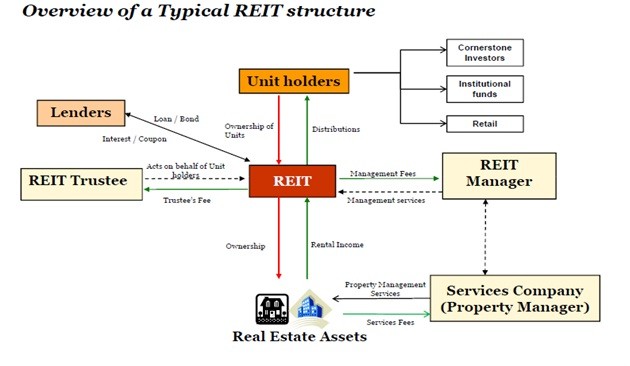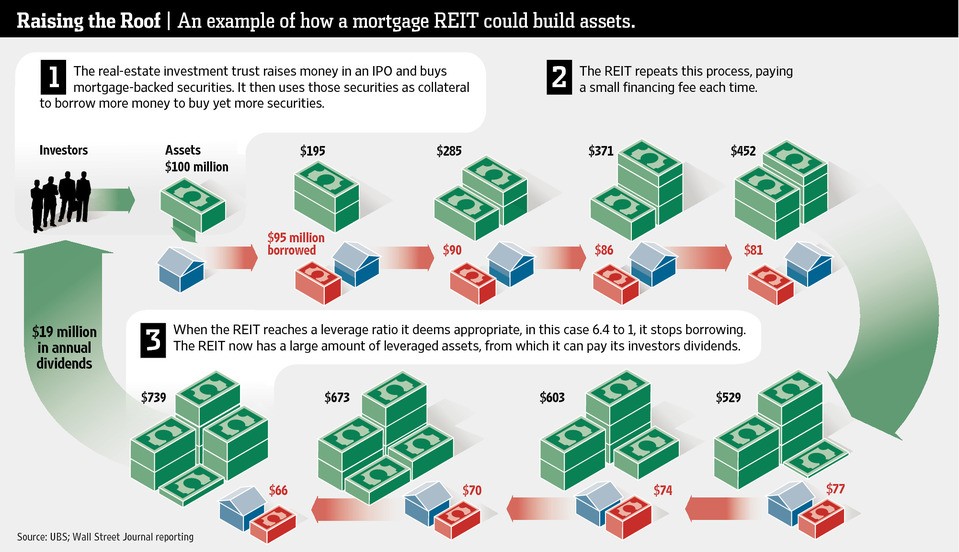Real Estate Investment Trusts (REITs)
Post on: 22 Май, 2015 No Comment

Times have changed — what used to be an object of interest only to businessmen and financiers is now open today to a wider audience. Making good financial investments is a necessity. People have different reasons to invest: for financial freedom (making their money work for them), long-term financial goals (college savings, etc.), and retirement. Everybody has different risk tolerance when it comes to investing. Fortunately, there is a lot of options which people, not just businessmen, can invest on.
What are real estate investment trusts (REITs)?
Real estate investment trusts or funds are companies that own or manage income-generating real estate and other assets related to real estate. The advantage of real estate investment funds is that they allow investors to earn a part of the income produced through real estate without the need to buy or own commercial and actual real estate property. Shareholders in real estate can earn a part of the earning of the company without financing large-scale real estate properties. Apartment, hotels, resorts, shopping malls, warehouses, and storage facilities can be considered as income-producing real estate asset. Because of this there, real estate investment trusts can offer retail REIT, residential REIT, office REIT, etc.
How do real estate investment trusts work?
Real estate investment trusts and funds
Real estate investment funds work like mutual funds; the money is pooled and invested in diverse income-producing real estate or real estate-related assets. One of the advantages of real estate investment funds is diversification and long-term capital appreciation. The investors are entitled to own shares of several real estate companies in their portfolio. Because real estate is likely to increase in value over time due to the increasing population and constant land area available, inflation and some other factors, investments on real estate assets are suitable for longer term investing. And they have one more cool advantage, almost all of the taxable income of real estate investment funds is obligatory paid out as dividends. With that, it is actually the investors or the shareholders who get all of the profits through the dividends.
You have a great idea for building a great building. But as often happens in life, the idea is present, the money is not. You need $1 million for the project. This is a no brainer for you, because you know about REITs. You can found such a fund and try to collect the money from private investors. You plan to issue 1 000 000 shares at $1 each, and this is how you will get the funds for your building. If you spread the idea and people find it a good deal, they can buy shares with you from your company and become your partners. If you sell all of the shares of the REIT, you will have the money and you can start building. When the estate is ready, you can rent it and make profits from it. 90% of these profits are paid to the shareholders/investors who are actually the owners of the building. For example, if your REIT company makes $100 000 of profits the first year, you will have to pay $90 000 to the investors as dividends. This means 9 cent per each share of your trust. This is how everyone can profit from big real estate projects, even with small amounts of money. And this is how really big projects can happen, even financed by ordinary people like you and me.
How are REITs traded?
Real estate investment funds are traded on stock exchanges but there are also privately or publicly listed REIFs. Privately listed shares are sold directly to investors (non-exchanged traded REITs). Shares of publicly traded trusts can be bought freely on the stock exchanges, like the shares of any other company. Companies who wish to qualify as a real estate investment fund should have the bulk of its earnings or profit generated by real estate assets. They are also required to distribute dividends annually that cover 90% of their taxable income. For the first year, they should have a minimum of 100 investors. The 5 top investors in real estate investment funds should not hold more than 50% of the shares in a company. Real estate investment trusts are managed by trustees and board of directors.
What are the Different Kinds of REITs?
Real estate investment trusts or funds are generally classified into 3 categories.
1. Equity REITs: They own commercial or income-producing real estate such as warehouses, apartments, hotels, and storage facilities. They typically invest in their own properties. The principal revenue of equity REITs come from the rent of their tenants. Part of their revenue comes from the sales of the real estate that they manage or own. The companies who own commercial real estate will first pay the expenses incurred by operating their properties, after which they will pay the excess income as dividends to their investors.

2. Mortgage REITs: These companies invest in commercial and residential mortgages and other mortgage related securities such as residential and commercial mortgage-backed securities (RMBs and CMBs). Compared to equity REITs, they use more borrowed capital (higher leverage). Mortgage REITs provide funds to real estate owners directly in the form of mortgage.
3. Hybrid REITs
Hybrid REITs combine the technique and strategies used in equity and mortgage REITs through investment in both mortgage and properties.
How to Invest in Real Estate Investment Trust?
As we mentioned, you can invest in REITs by buying shares of such business on stock exchanges. This is no different than buying the shares of any other publicly traded company. All you need is a brokerage account and some money.














